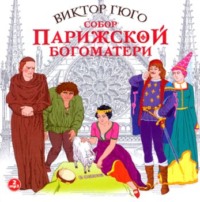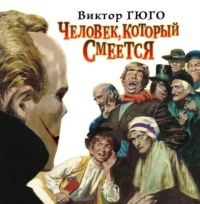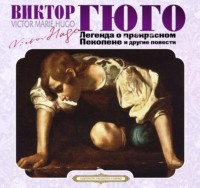 полная версия
полная версияLes Misérables
This is what Brujon had written the night before.
In spite of male and female searchers, Babet managed to pass the note on from La Force to the Salpêtrière, to a “good friend” whom he had and who was shut up there. This woman in turn transmitted the note to another woman of her acquaintance, a certain Magnon, who was strongly suspected by the police, though not yet arrested. This Magnon, whose name the reader has already seen, had relations with the Thénardier, which will be described in detail later on, and she could, by going to see Éponine, serve as a bridge between the Salpêtrière and Les Madelonettes.
It happened, that at precisely that moment, as proofs were wanting in the investigation directed against Thénardier in the matter of his daughters, Éponine and Azelma were released. When Éponine came out, Magnon, who was watching the gate of the Madelonettes, handed her Brujon’s note to Babet, charging her to look into the matter.
Éponine went to the Rue Plumet, recognized the gate and the garden, observed the house, spied, lurked, and, a few days later, brought to Magnon, who delivers in the Rue Clocheperce, a biscuit, which Magnon transmitted to Babet’s mistress in the Salpêtrière. A biscuit, in the shady symbolism of prisons, signifies: Nothing to be done.
So that in less than a week from that time, as Brujon and Babet met in the circle of La Force, the one on his way to the examination, the other on his way from it: —
“Well?” asked Brujon, “the Rue P.?”
“Biscuit,” replied Babet. Thus did the fœtus of crime engendered by Brujon in La Force miscarry.
This miscarriage had its consequences, however, which were perfectly distinct from Brujon’s programme. The reader will see what they were.
Often when we think we are knotting one thread, we are tying quite another.
CHAPTER III – APPARITION TO FATHER MABEUF
Marius no longer went to see any one, but he sometimes encountered Father Mabeuf by chance.
While Marius was slowly descending those melancholy steps which may be called the cellar stairs, and which lead to places without light, where the happy can be heard walking overhead, M. Mabeuf was descending on his side.
The Flora of Cauteretz no longer sold at all. The experiments on indigo had not been successful in the little garden of Austerlitz, which had a bad exposure. M. Mabeuf could cultivate there only a few plants which love shade and dampness. Nevertheless, he did not become discouraged. He had obtained a corner in the Jardin des Plantes, with a good exposure, to make his trials with indigo “at his own expense.” For this purpose he had pawned his copperplates of the Flora. He had reduced his breakfast to two eggs, and he left one of these for his old servant, to whom he had paid no wages for the last fifteen months. And often his breakfast was his only meal. He no longer smiled with his infantile smile, he had grown morose and no longer received visitors. Marius did well not to dream of going thither. Sometimes, at the hour when M. Mabeuf was on his way to the Jardin des Plantes, the old man and the young man passed each other on the Boulevard de l’Hôpital. They did not speak, and only exchanged a melancholy sign of the head. A heart-breaking thing it is that there comes a moment when misery looses bonds! Two men who have been friends become two chance passers-by.
Royol the bookseller was dead. M. Mabeuf no longer knew his books, his garden, or his indigo: these were the three forms which happiness, pleasure, and hope had assumed for him. This sufficed him for his living. He said to himself: “When I shall have made my balls of blueing, I shall be rich, I will withdraw my copperplates from the pawn-shop, I will put my Flora in vogue again with trickery, plenty of money and advertisements in the newspapers and I will buy, I know well where, a copy of Pierre de Médine’s Art de Naviguer, with wood-cuts, edition of 1655.” In the meantime, he toiled all day over his plot of indigo, and at night he returned home to water his garden, and to read his books. At that epoch, M. Mabeuf was nearly eighty years of age.
One evening he had a singular apparition.
He had returned home while it was still broad daylight. Mother Plutarque, whose health was declining, was ill and in bed. He had dined on a bone, on which a little meat lingered, and a bit of bread that he had found on the kitchen table, and had seated himself on an overturned stone post, which took the place of a bench in his garden.
Near this bench there rose, after the fashion in orchard-gardens, a sort of large chest, of beams and planks, much dilapidated, a rabbit-hutch on the ground floor, a fruit-closet on the first. There was nothing in the hutch, but there were a few apples in the fruit-closet, – the remains of the winter’s provision.
M. Mabeuf had set himself to turning over and reading, with the aid of his glasses, two books of which he was passionately fond and in which, a serious thing at his age, he was interested. His natural timidity rendered him accessible to the acceptance of superstitions in a certain degree. The first of these books was the famous treatise of President Delancre, De l’Inconstance des Démons; the other was a quarto by Mutor de la Rubaudière, Sur les Diables de Vauvert et les Gobelins de la Bièvre. This last-mentioned old volume interested him all the more, because his garden had been one of the spots haunted by goblins in former times. The twilight had begun to whiten what was on high and to blacken all below. As he read, over the top of the book which he held in his hand, Father Mabeuf was surveying his plants, and among others a magnificent rhododendron which was one of his consolations; four days of heat, wind, and sun without a drop of rain, had passed; the stalks were bending, the buds drooping, the leaves falling; all this needed water, the rhododendron was particularly sad. Father Mabeuf was one of those persons for whom plants have souls. The old man had toiled all day over his indigo plot, he was worn out with fatigue, but he rose, laid his books on the bench, and walked, all bent over and with tottering footsteps, to the well, but when he had grasped the chain, he could not even draw it sufficiently to unhook it. Then he turned round and cast a glance of anguish toward heaven which was becoming studded with stars.
The evening had that serenity which overwhelms the troubles of man beneath an indescribably mournful and eternal joy. The night promised to be as arid as the day had been.
“Stars everywhere!” thought the old man; “not the tiniest cloud! Not a drop of water!”
And his head, which had been upraised for a moment, fell back upon his breast.
He raised it again, and once more looked at the sky, murmuring: —
“A tear of dew! A little pity!”
He tried again to unhook the chain of the well, and could not.
At that moment, he heard a voice saying: —
“Father Mabeuf, would you like to have me water your garden for you?”
At the same time, a noise as of a wild animal passing became audible in the hedge, and he beheld emerging from the shrubbery a sort of tall, slender girl, who drew herself up in front of him and stared boldly at him. She had less the air of a human being than of a form which had just blossomed forth from the twilight.
Before Father Mabeuf, who was easily terrified, and who was, as we have said, quick to take alarm, was able to reply by a single syllable, this being, whose movements had a sort of odd abruptness in the darkness, had unhooked the chain, plunged in and withdrawn the bucket, and filled the watering-pot, and the goodman beheld this apparition, which had bare feet and a tattered petticoat, running about among the flower-beds distributing life around her. The sound of the watering-pot on the leaves filled Father Mabeuf’s soul with ecstasy. It seemed to him that the rhododendron was happy now.
The first bucketful emptied, the girl drew a second, then a third. She watered the whole garden.
There was something about her, as she thus ran about among paths, where her outline appeared perfectly black, waving her angular arms, and with her fichu all in rags, that resembled a bat.
When she had finished, Father Mabeuf approached her with tears in his eyes, and laid his hand on her brow.
“God will bless you,” said he, “you are an angel since you take care of the flowers.”
“No,” she replied. “I am the devil, but that’s all the same to me.”
The old man exclaimed, without either waiting for or hearing her response: —
“What a pity that I am so unhappy and so poor, and that I can do nothing for you!”
“You can do something,” said she.
“What?”
“Tell me where M. Marius lives.”
The old man did not understand. “What Monsieur Marius?”
He raised his glassy eyes and seemed to be seeking something that had vanished.
“A young man who used to come here.”
In the meantime, M. Mabeuf had searched his memory.
“Ah! yes – ” he exclaimed. “I know what you mean. Wait! Monsieur Marius – the Baron Marius Pontmercy, parbleu! He lives, – or rather, he no longer lives, – ah well, I don’t know.”
As he spoke, he had bent over to train a branch of rhododendron, and he continued: —
“Hold, I know now. He very often passes along the boulevard, and goes in the direction of the Glacière, Rue Croulebarbe. The meadow of the Lark. Go there. It is not hard to meet him.”
When M. Mabeuf straightened himself up, there was no longer any one there; the girl had disappeared.
He was decidedly terrified.
“Really,” he thought, “if my garden had not been watered, I should think that she was a spirit.”
An hour later, when he was in bed, it came back to him, and as he fell asleep, at that confused moment when thought, like that fabulous bird which changes itself into a fish in order to cross the sea, little by little assumes the form of a dream in order to traverse slumber, he said to himself in a bewildered way: —
“In sooth, that greatly resembles what Rubaudière narrates of the goblins. Could it have been a goblin?”
CHAPTER IV – AN APPARITION TO MARIUS
Some days after this visit of a “spirit” to Farmer Mabeuf, one morning, – it was on a Monday, the day when Marius borrowed the hundred-sou piece from Courfeyrac for Thénardier – Marius had put this coin in his pocket, and before carrying it to the clerk’s office, he had gone “to take a little stroll,” in the hope that this would make him work on his return. It was always thus, however. As soon as he rose, he seated himself before a book and a sheet of paper in order to scribble some translation; his task at that epoch consisted in turning into French a celebrated quarrel between Germans, the Gans and Savigny controversy; he took Savigny, he took Gans, read four lines, tried to write one, could not, saw a star between him and his paper, and rose from his chair, saying: “I shall go out. That will put me in spirits.”
And off he went to the Lark’s meadow.
There he beheld more than ever the star, and less than ever Savigny and Gans.
He returned home, tried to take up his work again, and did not succeed; there was no means of re-knotting a single one of the threads which were broken in his brain; then he said to himself: “I will not go out to-morrow. It prevents my working.” And he went out every day.
He lived in the Lark’s meadow more than in Courfeyrac’s lodgings. That was his real address: Boulevard de la Santé, at the seventh tree from the Rue Croulebarbe.
That morning he had quitted the seventh tree and had seated himself on the parapet of the River des Gobelins. A cheerful sunlight penetrated the freshly unfolded and luminous leaves.
He was dreaming of “Her.” And his meditation turning to a reproach, fell back upon himself; he reflected dolefully on his idleness, his paralysis of soul, which was gaining on him, and of that night which was growing more dense every moment before him, to such a point that he no longer even saw the sun.
Nevertheless, athwart this painful extrication of indistinct ideas which was not even a monologue, so feeble had action become in him, and he had no longer the force to care to despair, athwart this melancholy absorption, sensations from without did reach him. He heard behind him, beneath him, on both banks of the river, the laundresses of the Gobelins beating their linen, and above his head, the birds chattering and singing in the elm-trees. On the one hand, the sound of liberty, the careless happiness of the leisure which has wings; on the other, the sound of toil. What caused him to meditate deeply, and almost reflect, were two cheerful sounds.
All at once, in the midst of his dejected ecstasy, he heard a familiar voice saying: —
“Come! Here he is!”
He raised his eyes, and recognized that wretched child who had come to him one morning, the elder of the Thénardier daughters, Éponine; he knew her name now. Strange to say, she had grown poorer and prettier, two steps which it had not seemed within her power to take. She had accomplished a double progress, towards the light and towards distress. She was barefooted and in rags, as on the day when she had so resolutely entered his chamber, only her rags were two months older now, the holes were larger, the tatters more sordid. It was the same harsh voice, the same brow dimmed and wrinkled with tan, the same free, wild, and vacillating glance. She had besides, more than formerly, in her face that indescribably terrified and lamentable something which sojourn in a prison adds to wretchedness.
She had bits of straw and hay in her hair, not like Ophelia through having gone mad from the contagion of Hamlet’s madness, but because she had slept in the loft of some stable.
And in spite of it all, she was beautiful. What a star art thou, O youth!
In the meantime, she had halted in front of Marius with a trace of joy in her livid countenance, and something which resembled a smile.
She stood for several moments as though incapable of speech.
“So I have met you at last!” she said at length. “Father Mabeuf was right, it was on this boulevard! How I have hunted for you! If you only knew! Do you know? I have been in the jug. A fortnight! They let me out! seeing that there was nothing against me, and that, moreover, I had not reached years of discretion. I lack two months of it. Oh! how I have hunted for you! These six weeks! So you don’t live down there any more?”
“No,” said Marius.
“Ah! I understand. Because of that affair. Those take-downs are disagreeable. You cleared out. Come now! Why do you wear old hats like this! A young man like you ought to have fine clothes. Do you know, Monsieur Marius, Father Mabeuf calls you Baron Marius, I don’t know what. It isn’t true that you are a baron? Barons are old fellows, they go to the Luxembourg, in front of the château, where there is the most sun, and they read the Quotidienne for a sou. I once carried a letter to a baron of that sort. He was over a hundred years old. Say, where do you live now?”
Marius made no reply.
“Ah!” she went on, “you have a hole in your shirt. I must sew it up for you.”
She resumed with an expression which gradually clouded over: —
“You don’t seem glad to see me.”
Marius held his peace; she remained silent for a moment, then exclaimed: —
“But if I choose, nevertheless, I could force you to look glad!”
“What?” demanded Marius. “What do you mean?”
“Ah! you used to call me thou,” she retorted.
“Well, then, what dost thou mean?”
She bit her lips; she seemed to hesitate, as though a prey to some sort of inward conflict. At last she appeared to come to a decision.
“So much the worse, I don’t care. You have a melancholy air, I want you to be pleased. Only promise me that you will smile. I want to see you smile and hear you say: ‘Ah, well, that’s good.’ Poor Mr. Marius! you know? You promised me that you would give me anything I like – ”
“Yes! Only speak!”
She looked Marius full in the eye, and said: —
“I have the address.”
Marius turned pale. All the blood flowed back to his heart.
“What address?”
“The address that you asked me to get!”
She added, as though with an effort: —
“The address – you know very well!”
“Yes!” stammered Marius.
“Of that young lady.”
This word uttered, she sighed deeply.
Marius sprang from the parapet on which he had been sitting and seized her hand distractedly.
“Oh! Well! lead me thither! Tell me! Ask of me anything you wish! Where is it?”
“Come with me,” she responded. “I don’t know the street or number very well; it is in quite the other direction from here, but I know the house well, I will take you to it.”
She withdrew her hand and went on, in a tone which could have rent the heart of an observer, but which did not even graze Marius in his intoxicated and ecstatic state: —
“Oh! how glad you are!”
A cloud swept across Marius’ brow. He seized Éponine by the arm: —
“Swear one thing to me!”
“Swear!” said she, “what does that mean? Come! You want me to swear?”
And she laughed.
“Your father! promise me, Éponine! Swear to me that you will not give this address to your father!”
She turned to him with a stupefied air.
“Éponine! How do you know that my name is Éponine?”
“Promise what I tell you!”
But she did not seem to hear him.
“That’s nice! You have called me Éponine!”
Marius grasped both her arms at once.
“But answer me, in the name of Heaven! pay attention to what I am saying to you, swear to me that you will not tell your father this address that you know!”
“My father!” said she. “Ah yes, my father! Be at ease. He’s in close confinement. Besides, what do I care for my father!”
“But you do not promise me!” exclaimed Marius.
“Let go of me!” she said, bursting into a laugh, “how you do shake me! Yes! Yes! I promise that! I swear that to you! What is that to me? I will not tell my father the address. There! Is that right? Is that it?”
“Nor to any one?” said Marius.
“Nor to any one.”
“Now,” resumed Marius, “take me there.”
“Immediately?”
“Immediately.”
“Come along. Ah! how pleased he is!” said she.
After a few steps she halted.
“You are following me too closely, Monsieur Marius. Let me go on ahead, and follow me so, without seeming to do it. A nice young man like you must not be seen with a woman like me.”
No tongue can express all that lay in that word, woman, thus pronounced by that child.
She proceeded a dozen paces and then halted once more; Marius joined her. She addressed him sideways, and without turning towards him: —
“By the way, you know that you promised me something?”
Marius fumbled in his pocket. All that he owned in the world was the five francs intended for Thénardier the father. He took them and laid them in Éponine’s hand.
She opened her fingers and let the coin fall to the ground, and gazed at him with a gloomy air.
“I don’t want your money,” said she.
BOOK THIRD. – THE HOUSE IN THE RUE PLUMET
CHAPTER I – THE HOUSE WITH A SECRET
About the middle of the last century, a chief justice in the Parliament of Paris having a mistress and concealing the fact, for at that period the grand seignors displayed their mistresses, and the bourgeois concealed them, had “a little house” built in the Faubourg Saint-Germain, in the deserted Rue Blomet, which is now called Rue Plumet, not far from the spot which was then designated as Combat des Animaux.
This house was composed of a single-storied pavilion; two rooms on the ground floor, two chambers on the first floor, a kitchen downstairs, a boudoir upstairs, an attic under the roof, the whole preceded by a garden with a large gate opening on the street. This garden was about an acre and a half in extent. This was all that could be seen by passers-by; but behind the pavilion there was a narrow courtyard, and at the end of the courtyard a low building consisting of two rooms and a cellar, a sort of preparation destined to conceal a child and nurse in case of need. This building communicated in the rear by a masked door which opened by a secret spring, with a long, narrow, paved winding corridor, open to the sky, hemmed in with two lofty walls, which, hidden with wonderful art, and lost as it were between garden enclosures and cultivated land, all of whose angles and detours it followed, ended in another door, also with a secret lock which opened a quarter of a league away, almost in another quarter, at the solitary extremity of the Rue du Babylone.
Through this the chief justice entered, so that even those who were spying on him and following him would merely have observed that the justice betook himself every day in a mysterious way somewhere, and would never have suspected that to go to the Rue de Babylone was to go to the Rue Blomet. Thanks to clever purchasers of land, the magistrate had been able to make a secret, sewer-like passage on his own property, and consequently, without interference. Later on, he had sold in little parcels, for gardens and market gardens, the lots of ground adjoining the corridor, and the proprietors of these lots on both sides thought they had a party wall before their eyes, and did not even suspect the long, paved ribbon winding between two walls amid their flower-beds and their orchards. Only the birds beheld this curiosity. It is probable that the linnets and tomtits of the last century gossiped a great deal about the chief justice.
The pavilion, built of stone in the taste of Mansard, wainscoted and furnished in the Watteau style, rocaille on the inside, old-fashioned on the outside, walled in with a triple hedge of flowers, had something discreet, coquettish, and solemn about it, as befits a caprice of love and magistracy.
This house and corridor, which have now disappeared, were in existence fifteen years ago. In ‘93 a coppersmith had purchased the house with the idea of demolishing it, but had not been able to pay the price; the nation made him bankrupt. So that it was the house which demolished the coppersmith. After that, the house remained uninhabited, and fell slowly to ruin, as does every dwelling to which the presence of man does not communicate life. It had remained fitted with its old furniture, was always for sale or to let, and the ten or a dozen people who passed through the Rue Plumet were warned of the fact by a yellow and illegible bit of writing which had hung on the garden wall since 1819.
Towards the end of the Restoration, these same passers-by might have noticed that the bill had disappeared, and even that the shutters on the first floor were open. The house was occupied, in fact. The windows had short curtains, a sign that there was a woman about.
In the month of October, 1829, a man of a certain age had presented himself and had hired the house just as it stood, including, of course, the back building and the lane which ended in the Rue de Babylone. He had had the secret openings of the two doors to this passage repaired. The house, as we have just mentioned, was still very nearly furnished with the justice’s old fitting; the new tenant had ordered some repairs, had added what was lacking here and there, had replaced the paving-stones in the yard, bricks in the floors, steps in the stairs, missing bits in the inlaid floors and the glass in the lattice windows, and had finally installed himself there with a young girl and an elderly maid-servant, without commotion, rather like a person who is slipping in than like a man who is entering his own house. The neighbors did not gossip about him, for the reason that there were no neighbors.
This unobtrusive tenant was Jean Valjean, the young girl was Cosette. The servant was a woman named Toussaint, whom Jean Valjean had saved from the hospital and from wretchedness, and who was elderly, a stammerer, and from the provinces, three qualities which had decided Jean Valjean to take her with him. He had hired the house under the name of M. Fauchelevent, independent gentleman. In all that has been related heretofore, the reader has, doubtless, been no less prompt than Thénardier to recognize Jean Valjean.
Why had Jean Valjean quitted the convent of the Petit-Picpus? What had happened?
Nothing had happened.
It will be remembered that Jean Valjean was happy in the convent, so happy that his conscience finally took the alarm. He saw Cosette every day, he felt paternity spring up and develop within him more and more, he brooded over the soul of that child, he said to himself that she was his, that nothing could take her from him, that this would last indefinitely, that she would certainly become a nun, being thereto gently incited every day, that thus the convent was henceforth the universe for her as it was for him, that he should grow old there, and that she would grow up there, that she would grow old there, and that he should die there; that, in short, delightful hope, no separation was possible. On reflecting upon this, he fell into perplexity. He interrogated himself. He asked himself if all that happiness were really his, if it were not composed of the happiness of another, of the happiness of that child which he, an old man, was confiscating and stealing; if that were not theft? He said to himself, that this child had a right to know life before renouncing it, that to deprive her in advance, and in some sort without consulting her, of all joys, under the pretext of saving her from all trials, to take advantage of her ignorance of her isolation, in order to make an artificial vocation germinate in her, was to rob a human creature of its nature and to lie to God. And who knows if, when she came to be aware of all this some day, and found herself a nun to her sorrow, Cosette would not come to hate him? A last, almost selfish thought, and less heroic than the rest, but which was intolerable to him. He resolved to quit the convent.








